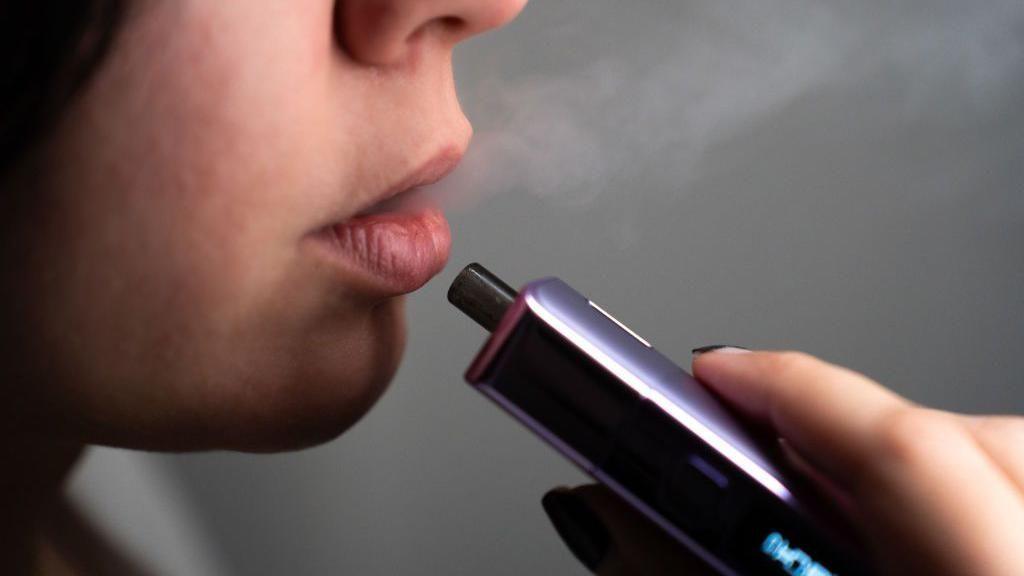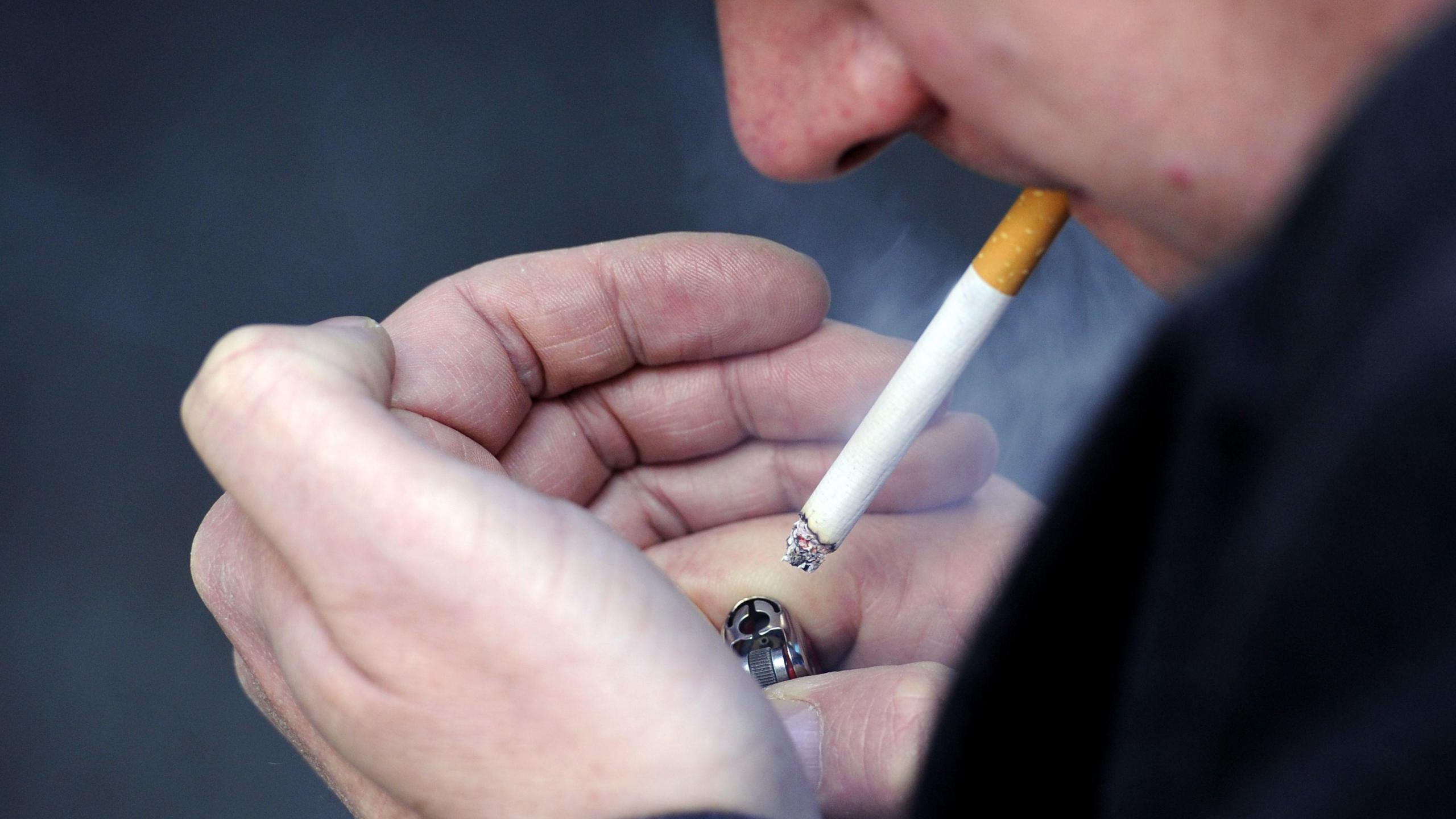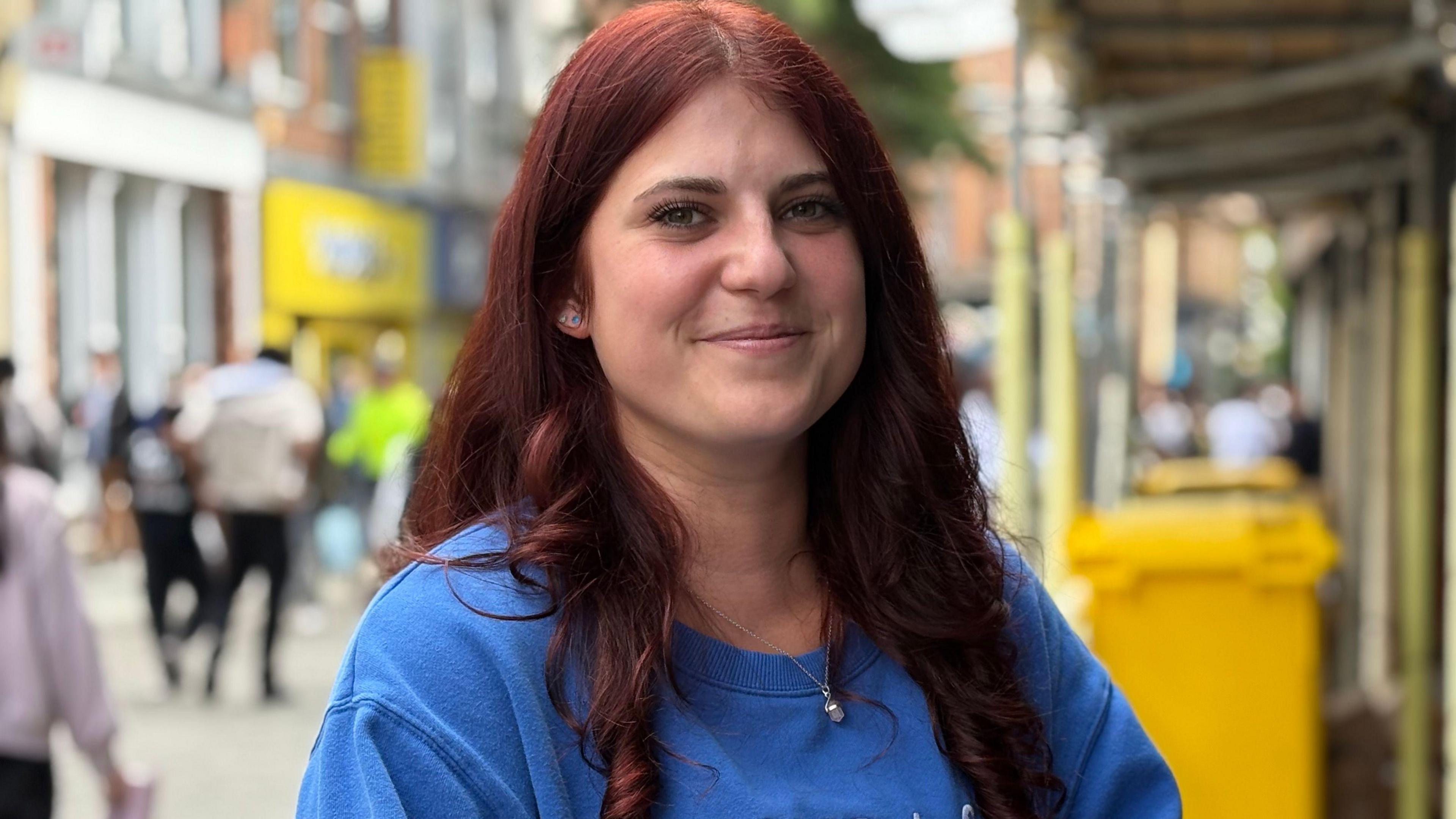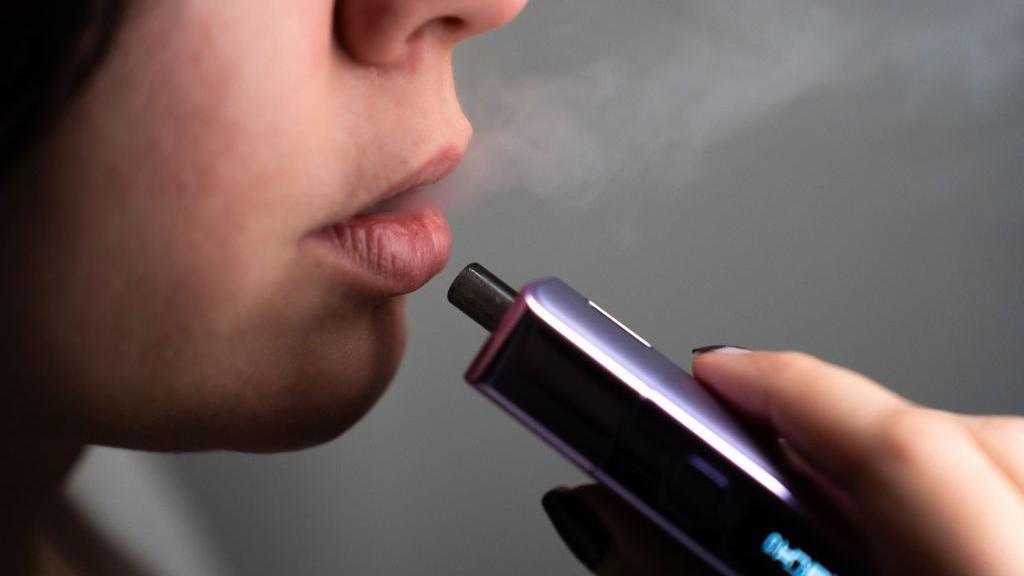People quitting smoking to be part of vape study

Scientists are setting out to look at the long-term impact of vaping
- Published
Ex-smokers in Birmingham are being recruited for a study looking at the impact of vaping on them.
Scientists are setting out to look at the long-term impact of vaping on people, to investigate the relative safety of vaping after giving up smoking and how long people should vape for after quitting smoking.
About 200 people will be recruited from a staff smoking-cessation clinic and community stop-smoking services, at University Hospitals Birmingham NHS.
Half will be given nicotine replacement patches or gum, while the other half will be given vapes. Samples will be taken over a year to assess lung health and will be compared to samples from people who have never smoked or vaped.
Chief investigator Dr Aaron Scott said research would look at how vaping affected important immune cells, and cells lining the insides of the lung.
He said: "Since these cell types play a critical role in the development of smoking-related lung diseases, these changes will provide clear insight into vaping on lung health."
'Informed personal choice'
Other studies into vaping have assessed lung health at a single time point, and the researchers, led by Birmingham university experts, hope that by tracking people for a year they will gain further insights.
The experts, who have received £1.55m from the Medical Research Council, want to find out about the biological effects of vaping on lung cells, immune cells, inflammatory markers and the airway.
They will also look at the build-up of toxicants after vaping.
David Thickett, professor of respiratory medicine at the University of Birmingham and clinical lead for the study, said it would provide "critical data".
He said the data was needed to understand the safety of vaping as a short-term smoking cessation strategy and also the potential for harm in longer-term usage, so people can make "an informed personal choice".
England's chief medical officer, Prof Sir Chris Whitty, has previously said: "If you smoke, vaping is much safer; if you don't smoke, don't vape."
Get in touch
Tell us which stories we should cover in Birmingham and the Black Country
Follow BBC Birmingham on BBC Sounds, Facebook, external, X, external and Instagram, external.
Related topics
- Published22 September

- Published3 July

- Published1 June

- Published21 February
